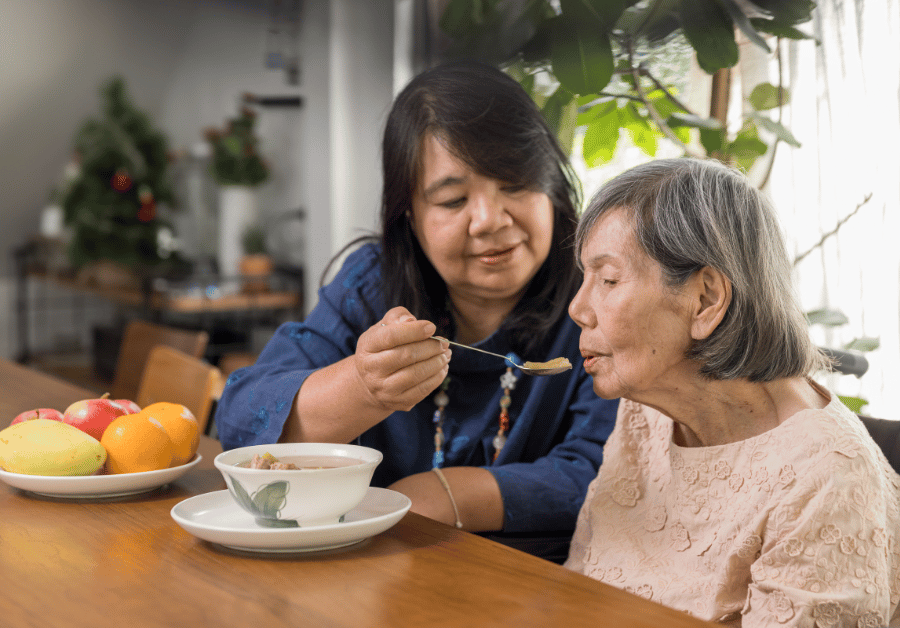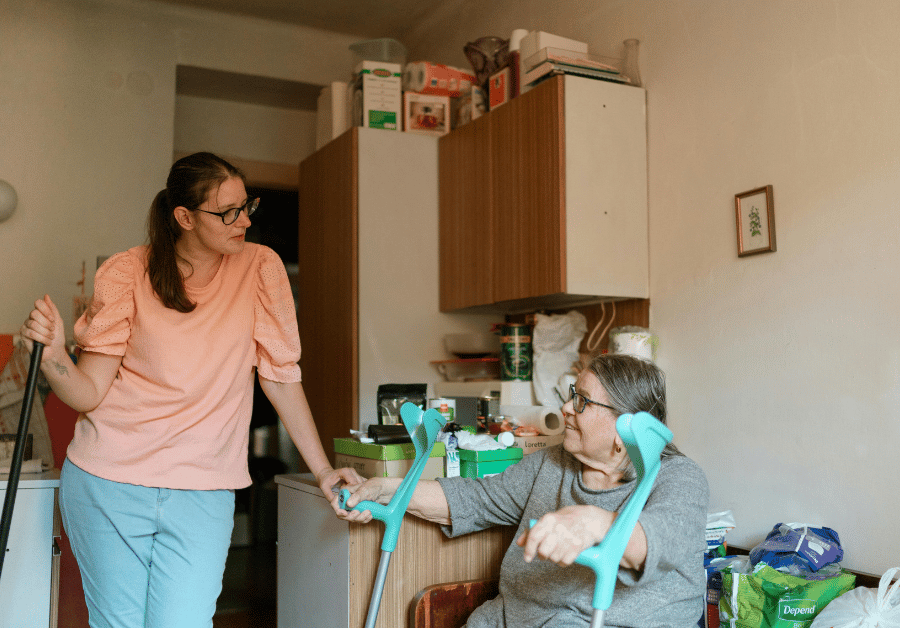NDIS SIL Funding: Your Comprehensive Guide to Supported Independent Living
NDIS SIL Funding: Your Comprehensive Guide to Supported Independent Living in Australia
Navigating the National Disability Insurance Scheme (NDIS) can sometimes feel like a complex journey, especially when it comes to understanding specific funding streams like NDIS SIL funding. Supported Independent Living (SIL) is a crucial support designed to help NDIS participants live as independently as possible. For many, it represents the key to a fulfilling life within their community, offering the right level of assistance with daily tasks in a shared or individual living environment. This comprehensive guide aims to demystify NDIS SIL funding, providing you with all the essential information needed to understand, access, and make the most of this vital support in Australia.
At Alliance Care Support, we are dedicated to empowering individuals with disabilities to achieve their personal goals and lead fulfilling lives. We understand the nuances of supported independent living and are committed to offering tailored care, support, and resources that truly make a difference. Our NDIS-approved homes across various locations like Sydney, Melbourne, Brisbane, Perth, Adelaide, and Hobart are designed with accessibility and comfort in mind, ensuring a safe and nurturing environment for all participants.
What is Supported Independent Living (SIL) Under the NDIS?

Supported Independent Living (SIL) refers to the help and/or supervision of daily tasks to help you live as independently as possible. It's a type of support funded by the NDIS for participants who need a significant level of assistance to manage their daily lives. Unlike other home and living supports, SIL specifically covers the personal supports you need to live in a shared or individual home, but it does not cover rent, groceries, or utilities. It's about building your capacity and providing the necessary support so you can thrive in your chosen living arrangement.
The core purpose of supported independent living is to foster greater independence for NDIS participants. This means providing assistance with a range of activities that most people take for granted, from personal care to household chores, all while encouraging skill development and community participation. The National Disability Insurance Agency acknowledges the Traditional Owners and Custodians of Country throughout Australia and acknowledges their continuing commitment to improving the lives of individuals with disability, a commitment that aligns perfectly with the goals of SIL.
The Core Components of NDIS Supported Independent Living
What exactly does NDIS supported independent living encompass? It's more than just a roof over your head; it's a holistic support system tailored to your individual needs. Key components typically include:
- Personal Care: Assistance with showering, dressing, grooming, and other personal hygiene routines.
- Meal Preparation: Support with planning, cooking, and preparing healthy meals, often with a focus on building your own cooking skills.
- Household Tasks: Help with general cleaning, laundry, and maintaining a safe and tidy living environment.
- Medication Management: Reminders and assistance with managing prescribed medications.
- Community Access: Support to engage in social activities, appointments, shopping, and other community events, helping you explore data and opportunities within your local area.
- Budgeting and Financial Management: Guidance on managing personal finances and household budgets NDIS related.
- Skill Development: Opportunities to learn and develop new independent living skills, such as problem-solving, decision-making, and communication.
The level of support varies greatly depending on individual needs, ranging from intermittent supervision to 24/7 high-intensity support. This flexibility ensures that SIL is suitable for a wide range of NDIS participants.
Who is Eligible for NDIS SIL Funding?
Eligibility for NDIS SIL funding is determined by the National Disability Insurance Agency (NDIA) based on an individual's functional capacity and support needs. Generally, SIL is considered for participants who:
- Have a permanent and significant disability.
- Require a significant level of daily support to live independently.
- Are unable to live independently or with informal support, or where informal support is not sustainable.
- Are transitioning from a more restrictive environment (e.g., hospital, residential aged care) to a more independent setting.
- Are seeking to move out of their family home to gain greater independence.
The NDIA assesses each application on a case-by-case basis, considering the participant's goals, current living situation, and the reasonableness and necessity of SIL supports. It's crucial to demonstrate how SIL will help you achieve your goals and increase your independence over time.
Understanding the NDIS Home and Living Pathway
Before applying for NDIS SIL funding, participants typically engage with the NDIS Home and Living Pathway. This process helps the NDIA understand your housing and support needs and identify the most appropriate home and living support options. It involves discussing your current living situation, your goals for independence, and what types of supports might best suit you. This comprehensive assessment ensures that NDis supported independent living is the right fit, and that your plan is tailored to your unique circumstances.
The pathway helps NDIS participants identify whether SIL, or other supports like Individual Living Options (ILO) or Specialist Disability Accommodation (SDA), are most appropriate. It's a collaborative process designed to ensure that the funding decisions align with your long-term aspirations for independent living.
The NDIS SIL Funding Application Process: A Step-by-Step Guide

Applying for NDIS SIL funding can seem daunting, but breaking it down into manageable steps can make the process clearer. Here's a step-by-step guide to help you navigate it:
Key Steps to Secure Your SIL Funding
- Gather Your Evidence: Before initiating the process, compile all relevant reports and assessments from health professionals (e.g., occupational therapists, psychologists, support coordinators). These documents should clearly outline your functional capacity, daily support needs, and why supported independent living is the most reasonable and necessary support for you.
- Engage with a Support Coordinator: A good support coordinator is invaluable. They can help you understand SIL funding basics, prepare your home and living request, and connect you with potential SIL providers. They can also help you explore data and evidence to strengthen your application and navigate the NDIS marketplace around Australia.
- Develop a Home and Living Goal: Work with your support coordinator to clearly articulate your home and living goals within your NDIS plan. This should explain how NDIS supported independent living will help you achieve greater independence and participate more fully in your community.
- Request a Home and Living Assessment: Your support coordinator will submit a formal request to the NDIA for a home and living assessment. This often involves a meeting with an NDIS planner or delegate to discuss your needs in detail.
- Obtain SIL Quotes: Once your home and living request is approved in principle, you will need to obtain quotes from prospective SIL providers. These quotes detail the estimated costs of the supports you would receive in a SIL setting. It's advisable to get quotes from multiple providers to ensure you find the best fit and value. Alliance Care Support can provide comprehensive quotes tailored to your specific needs.
- Submit Your SIL Request to the NDIA: Your support coordinator will then submit your preferred SIL quote along with a comprehensive SIL roster of care (RoC) to the NDIA. The RoC outlines the specific daily tasks and hours of support you require.
- NDIA Review and Decision: The NDIA will review your application, considering all the evidence, your goals, and the submitted quotes. This is where funding decisions please read the operational guideline carefully come into play. They will assess whether the requested supports are reasonable and necessary.
- Plan Approval and Implementation: If approved, your NDIS plan will be updated to include NDIS SIL funding. You can then work with your chosen SIL provider to establish your living arrangement and commence receiving supports.
This process can take time, so patience and thorough preparation are key. Having the right documentation and a proactive approach will significantly improve your chances of securing the appropriate SIL funding.
Navigating Budgets and Funding Decisions for SIL
Understanding the financial aspect of SIL funding and budgets NDIS is crucial. SIL funding is typically included in your NDIS plan under the 'Core – Daily Activities' support category. The amount of funding you receive is based on the level of support you need, which is determined by your assessments and the roster of care submitted by your chosen living provider. It's important to remember that SIL funding is designed to cover the cost of your personal supports, not household expenses. The National Disability Insurance Agency provides detailed provider guidance on how SIL funding decisions are made, so please read their operational guideline.
Participants and their families often find the budgets NDIS system complex. This is where the expertise of your support coordinator and your chosen SIL providers becomes invaluable. They can help you understand the breakdown of costs, how your funding is utilised, and ensure transparency in service agreements. The goal is to ensure your NDIS funding is managed effectively to provide you with the best possible supported independent living experience.
Choosing the Right NDIS SIL Provider: What to Look For
Selecting the right SIL provider is one of the most critical steps in your supported independent living journey. A good provider will not only offer the necessary supports but also create an environment where you feel safe, respected, and empowered. When evaluating potential providers, consider the following:
- Experience and Reputation: Look for providers with a proven track record in delivering high-quality supported independent living services. Check reviews and testimonials.
- Person-Centred Approach: Does the provider genuinely focus on your individual goals, preferences, and choices? Do they involve you in decision-making?
- Staff Quality and Training: Inquire about the qualifications, training, and experience of their support workers. Are they equipped to handle your specific needs?
- Accessibility and Suitability of Homes: If you're considering a shared living arrangement, ensure the homes are accessible, comfortable, and located in areas that suit your lifestyle (e.g., close to public transport, amenities).
- Transparency in Pricing and Services: Ensure clear communication about what is included in their services and how your NDIS funding will be used.
- Flexibility and Adaptability: Can the provider adapt their supports as your needs change?
- Culture and Values: Does their mission align with your values and aspirations for independent living?
Alliance Care Support: Empowering Independent Living Across Australia
At Alliance Care Support, we pride ourselves on being a leading NDIS supported independent living provider dedicated to empowering individuals with disabilities. With a focus on tailored care, our mission is to help clients achieve their personal goals while receiving compassionate care, enabling them to lead fulfilling lives in a supportive community. We offer a range of services, including supported independent living, in-home care, and respite services, all designed to foster independence and enhance quality of life.
Our NDIS-approved homes across Australia, including vibrant cities like Sydney, Melbourne, Brisbane, Perth, Adelaide, and Hobart, are equipped with accessibility features, ensuring safety and comfort for all NDIS participants. We understand that choosing a place to live is a significant decision, and our team works closely with you to find the right fit, whether it's a shared living arrangement or support in your own home. Our commitment to excellence means our staff are highly trained, compassionate, and dedicated to providing the highest standard of care, ensuring you receive the right NDIS funding supports.
We believe in creating environments that foster growth, connection, and true independence. Our approach is always person-centred, ensuring that your voice is heard, and your choices are respected. We help you better support your NDIS journey, identify new business opportunities (if applicable), and understand the NDIS marketplace around Australia to help you live your best life.
Maximising Your NDIS SIL Plan: Tips and Strategies

Once you have your NDIS SIL funding approved, the next step is to maximise its potential. This involves proactive planning, effective communication with your provider, and continuous review of your supports. Here are some tips:
- Active Participation in Planning: Be actively involved in your NDIS plan review meetings. Provide clear feedback on what is working well and what needs to change.
- Regular Communication with Your Provider: Maintain open lines of communication with your SIL provider. Discuss your progress, any challenges, or changes in your needs.
- Utilise Support Coordination: Your support coordinator is a key resource. They can help you resolve issues, connect you with other services, and prepare for plan reviews. They are there to help you better support your NDIS journey and ensure your support coordination is effective.
- Focus on Capacity Building: While SIL funding provides daily assistance, remember its underlying goal is to build your capacity. Actively engage in skill-building activities and strive for greater independence where possible.
- Review Your Service Agreement Annually: Your service agreement with your SIL provider should be reviewed regularly to ensure it still meets your needs and aligns with your NDIS plan.
Understanding Your SIL Service Agreement
The service agreement is a crucial document that outlines the terms and conditions of the supports you receive from your SIL provider. It includes information about the services provided, their cost, how they will be delivered, and the responsibilities of both the participant and the provider. It is vital to read and understand your service agreement thoroughly before signing. Ensure it clearly states what SIL works for you, the planning home and living support options, and how any issues or changes will be managed. This agreement is critical for ensuring transparent and effective delivery of your NDIS supports.
The Future of Supported Independent Living in Australia
Ready for Greater Independence?
Contact Us TodayThe landscape of supported independent living within the NDIS is continuously evolving. The National Disability Insurance Agency (NDIA) is always looking to refine its approach to ensure that supports are person-centred, effective, and sustainable. This involves ongoing data collection and research to better understand the needs of NDIS participants and identify new business opportunities for providers. The focus remains on fostering greater independence and choice for individuals with disabilities across Australia, from South Australia to Western Australia, Tasmania, and beyond.
Providers like Alliance Care Support are at the forefront of this evolution, continually adapting their services to meet the changing needs of participants and align with the NDIS's strategic goals. We believe that through collaborative efforts between participants, families, providers, and the NDIA, the future of supported independent living in Australia will be one of increased opportunity, innovation, and empowerment.
You may be eligible if you have a permanent and significant disability, require daily support to live independently, and your needs cannot be met through informal or lower-level supports. The NDIA will assess your application based on your goals, current living situation, and the ‘reasonable and necessary’ criteria.
No. NDIS SIL funding pays for the personal support you receive—such as help with daily tasks, skill building, and supervision—but it does not cover everyday living expenses like rent, utilities, or food. These costs remain your responsibility.
Yes, in some cases. While many SIL arrangements involve shared housing, you may receive SIL in an individual living setting if it’s considered the most reasonable and necessary option for your needs. This is assessed on a case-by-case basis by the NDIA.
Approval times can vary depending on the completeness of your application, the availability of supporting evidence, and NDIA processing times. On average, it may take several weeks to a few months. Having a well-prepared application with all necessary documentation can speed up the process.
Conclusion: Your Journey to Supported Independent Living Begins Here
Understanding and accessing NDIS SIL funding is a significant step towards achieving greater independence and a fulfilling life for many Australians with disabilities. It's a complex but incredibly rewarding journey, offering the help and supervision needed for daily tasks, fostering skill development, and promoting community engagement. By thoroughly preparing your application, choosing the right living provider, and actively participating in your plan, you can unlock the full potential of supported independent living.
At Alliance Care Support, we are here to walk you through each step, from understanding SIL funding basics to choosing the right SIL provider and completing your application. Our dedicated team is ready to provide the compassionate, tailored care and resources you need to thrive in your own home and community. We invite you to explore the possibilities of a more independent life with us.
Ready to explore your Supported Independent Living options? Contact Alliance Care Support today to learn how we can help you achieve your independence goals. Visit us at https://www.alliancecaresupport.com.au/ or email us at support@alliancecaresupport.com.au.
